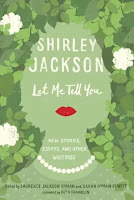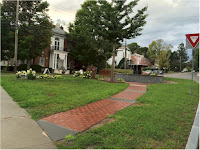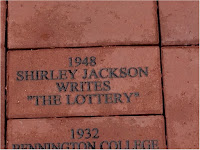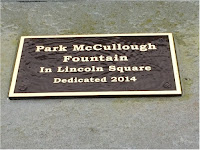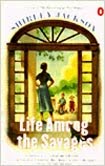The Women's History Month portion of my Heritage Month Project has provided me with an opportunity to do some thinking about two women writers who worked in times that were close together in terms of timeline but different in terms of what was going on in society. They also both wrote about the lives of housewives.
I am talking about my obsession, Shirley Jackson, and Erma Bombeck.
Shirley Jackson
While Shirley Jackson is known today for writing literary horror, during her lifetime she also wrote memoirish essays for women's magazines, work that paid rather well and was well received. She turned out two collections of these things in the early 1950s, Life Among the Savages and Raising Demons. In 2015, fifty years after her death, Let Me Tell You: New Stories, Essays, and Other Writings was released, which included more of her housewife work. It's been fifteen years since I've read the first two books, but at the time I found one of them "just so well done." The same is true of her housewife essays in Let Me Tell You, which I've been reading this past month.These essays are drole, but they don't focus on being funny. They are not jokie. There is no reaching to get a laugh, because making readers laugh isn't the point. The family members who appear in the essays are well-defined characters. Whether they are true to life or not is another thing, but from essay to essay they stay true to the characters Jackson created.
Because these essays were written so long ago, some of them seem like historical documents. The one on teenagers' need to conform, for instance. That was an issue in the 1950s? Who knew? Jackson gives the best explanation for the teenage desire to sacrifice individuality for the crowd that I've ever seen.
What Jackson doesn't do in the housewife essays in Let Me Tell You is complain about doing housework. I kept waiting for that, but it never came. She certainly doesn't glorify it or say anything to suggest it is women's God given role for which they should be grateful. Housework isn't a good thing, it isn't a bad thing. It's just a thing.
Erma Bombeck
Around the same time Jackson was writing for women's magazines, Erma Bombeck, a humorist who wrote specifically about being a housewife and mother, began writing a column for a local newspaper. It wasn't until the mid-sixties, however, that she became a syndicated columnist and the '70s and '80s were her era.
Being old as mud, as I am, I remember Erma Bombeck. It is difficult to exaggerate how successful she was. I remember being surprised to see her as a guest on some evening television special. I was totally blown away when I learned she was pulling down half a million dollars a year, because that was real money back then. I didn't know until recently that she had an eleven-year gig on Good Morning America or that she developed and wrote for a sitcom. It was not a successful sitcom. However, this was before stand-up comics were getting their own shows. To me the failure of the show is far less significant than the fact that a woman got a chance to create one.
I have huge respect for Bombeck's achievement. I was just never a fan of her writing. It may have been because I was younger and felt the things she wrote about were somewhat dated. I may have found her humor obvious and contrived. I can't even recall. I tried to read one of her books this past month and just couldn't get through it. Bombeck's success must have put her under tremendous pressure to produce content for the columns and appearances she was making, which Jackson probably didn't experience. The "rush to publish" could easily have had an impact on her writing.
Is Writing About Housewives a Good Career Move?
In the foreword to Let Me Tell You, Jackson's biographer, Ruth Franklin, says that Jackson "considered herself at least a part-time housewife." A lot of the writing she did about that part-time life was done in the early 1950s, a period we think of as the Golden Age of Housewifery, the era I've read that trad wives look back upon with nostalgia. Yet an article in The Guardian from 2016 raises the question of whether critics didn't take her seriously for a long time because of "her busy sideline producing funny tales about life as a housewife and mother for women's magazines." The era when being a housewife was most highly accepted was also a time when being a housewife marked you as lesser? Twisted much?
Bombeck, on the other hand, was writing during the second wave of feminism. Women were leaving the house. You'd think that would be a really bad time to be trying to make a career writing about housewives. But, no, Bombeck did fantastically well. Two theories about why, both my own:
- While Jackson didn't complain about housework, Bombeck did. She made it okay to complain, and her housewife readers appreciated that.
- Bombeck's housewife humor was nonthreatening. Readers could embrace this housewife stuff at the same time that women were turning their backs on it in order to do other things. Jackson's housewife writing was nonthreatening, too, but there wasn't anything going on culturally at that time that would make people seek it out for comfort the way they might have in the '70s and '80s.
